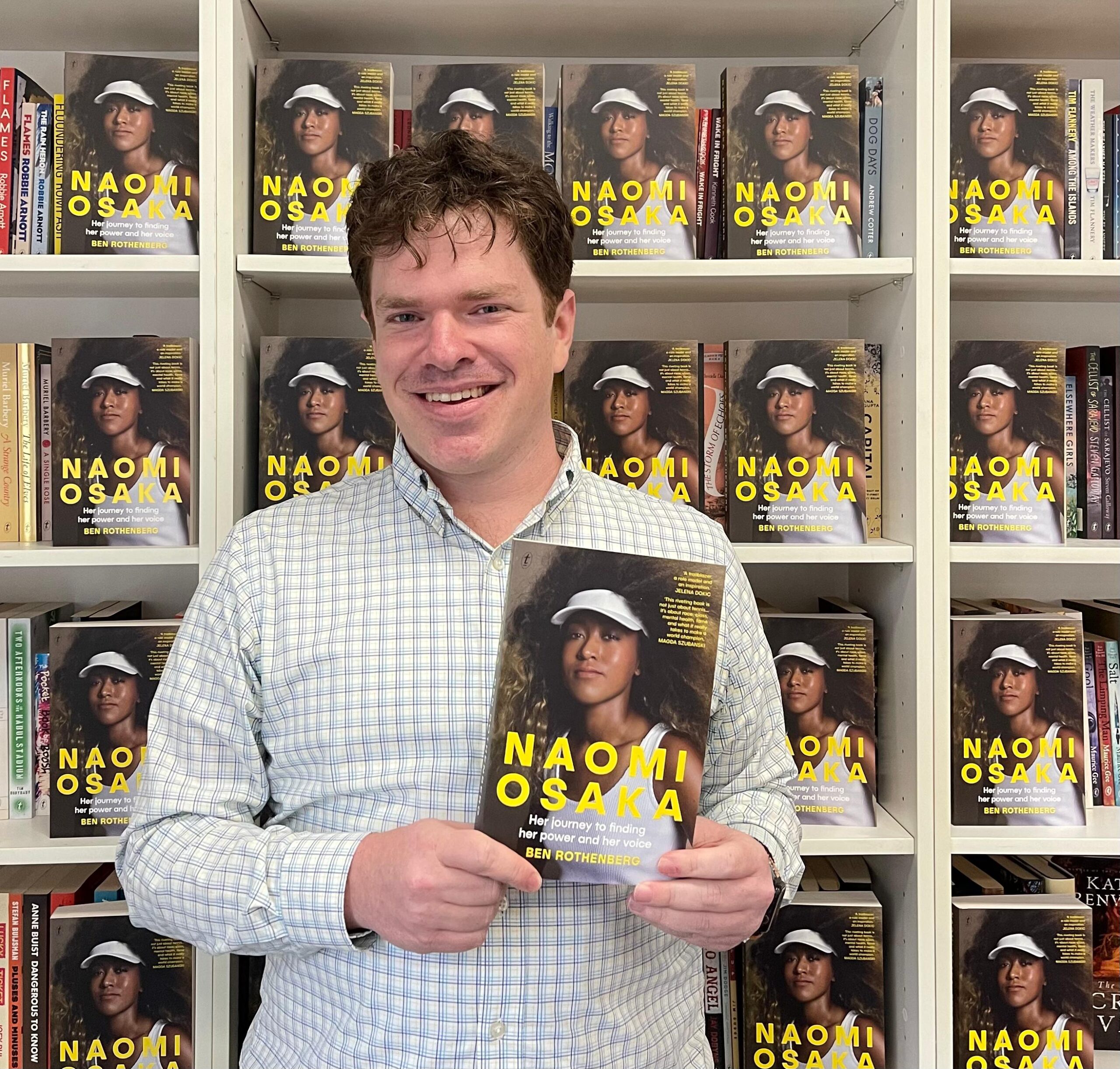Important moment to understand the life and career of Naomi Osaka. New York, September 8, 2018. At the US Open awards ceremony the boos were loud. They were coming from an angry crowd after Serena Williams lost in one of the most controversial Grand Slam finals in history. The winner is the one showing anguish.
“It was an incredibly overwhelming experience for her. She suffered through it because she loves Serena and she was deniying her reaching Margaret Court’s record of 24 Grand Slams. People were framing Serena as the bad one and Naomi as the good one. That made her very uncomfortable and she didn’t like it,” journalist Ben Rothenberg, biographer of the Japanese-Haitian former world number one, tells CLAY.
With precise timing on the verge of the tennis player’s return to a big stage at the Australian Open, the reporter with a background at the New York Times and Racquet published his book “Naomi Osaka: Her Journey to Finding Her Power and Her Voice” (Dutton; 2024).
[ CLAY read for free. But if you can, please make a contribution here so we can keep telling you the great #TennisStories around the world. It’s very easy and quick – thank you! ]
In an interview with CLAY, Rothenberg discusses the four-time Grand Slam champion’s comeback after becoming a mother, and details in depth the most flavorful aspects of the Japanese’s life and career: an intense life full of highs and lows, drama on and off the court, and a constantly “evolving” personality with a genuine social sense that led the North American author to choose her as his muse.
She clarifies the misunderstanding that arose around her refusal to give press conferences at Roland Garros 2021 when contacts with the press were through video calls (“Naomi loves journalists!”), reveals that her first demotivation in tennis came after providing economic stability to her family by not finding another important reason to compete, and navigates an unknown facet of her life: before being a tennis player, Naomi Osaka was an actress.
– Why you started to write this book?
– Having worked so much in tennis and being involved in the tour on a daily basis made me want to write a book about the sport. I’m covering tennis since 2012, so it’s been a while a work like this was on my mind. I knew I wanted to do something about the women’s tour.
– Why?
– Because it has had les coverage. Orginally I wanted to do something about the history of women’s tennis and how it has became the most succesfull female sport in the world, but I didn’t finally found the right idea. In 2020 I was following Naomi. She started speaking up stuff related to Black Lives Matter in a very different way. Not as the shy person I cover since she was 18 years old. I thought it was very fasinating and impressing that she was finding this different voice, this different purpose.
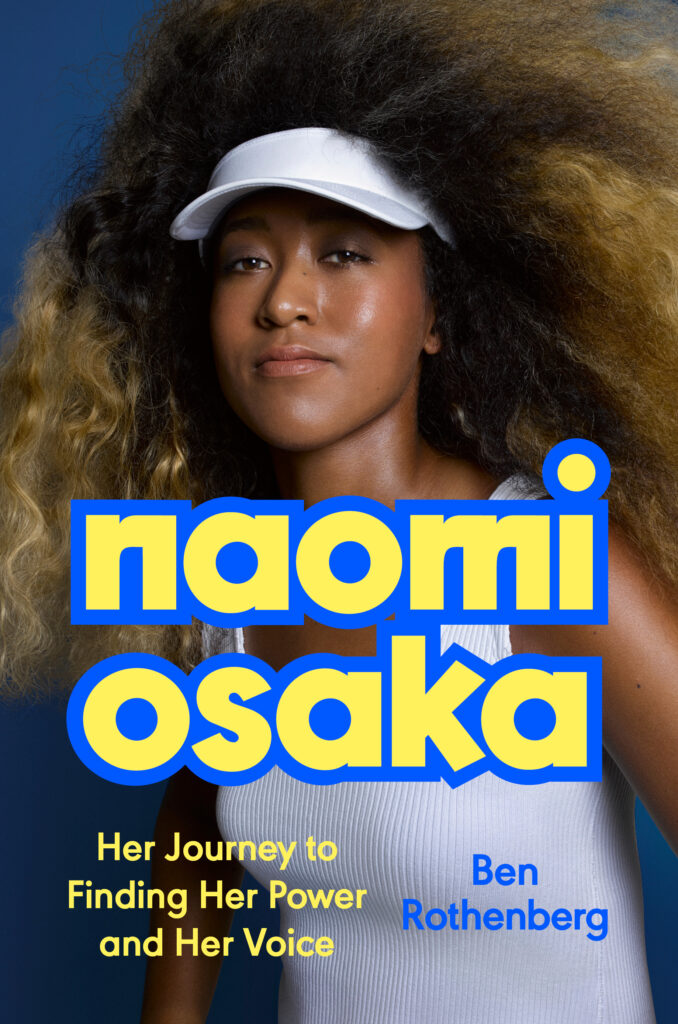
– The sensitive social environment was key. A real turning point in her life.
– She stops playing during the Cincinnati tournament in New York as protest (the event was held in Flushing Meadows due to the pandemic. Osaka joined the wave of sports boycotts in protest for social justice). That was the first day I though putting Naomi in a book might be a good idea. Then, in the US Open she wears the masks. And that attention didn’t turn into a distraction, but a motivation to win a third Grand Slam. That goes completely against normal tennis logic or advices: inviting pressure, asking for extra attention while playing a Slam. And winning it? I was really impressed by that.
– That was followed up by another dramatic year also for her on tour. She withdraws in the middle of the French Open 2021 after refusing going to press conferences.
– She is so incredibly open and honest in press conferences. She has talked about almost every single thing. Brings up ideas,says things even not directly asked… she offers a very complete picture of her. People misunderstood what happened in Paris. She likes doing media, she wasn’t comfortable with the format. She felt like she was losing control, she had a hard time with the zoom press conferences, feeling disconnected from people who were talking to her. “I started feeling vulnerable”, she said. She even was many times more honest with the press than with her coaches about what happened in the match.
– Then, in the Olympic Games in Japan she was chosen to light the Olympic cauldron.
– All that combination of things… I messaged my book agents during the opening ceremony in Tokyo: “c’mon, we have to do this. Naomi has to be able to work”. Things went well, writing was clear and I was able to interview many people of her family, her inner circle, persons that know her since she was a kid. I planned to travel the full 2022 following her, but wasn’t the best year for her in a longtime and wasn’t clear if she was going to keep playing tennis. A good moment to put and end of the first book about her. I’m sure they will be more.
– What was the reason of her bad 2022?
– I think she didn’t find a clear motivation. Her big incentive for a lot of her career was to make her family stable financially, after their parents bet everything on their daughters’ tennis. She achieved that meaningfully in 2018 when she won Indian Wells. After that, she started struggling with her purpose and her drive. It’s a chapter in the book called “Charleston”. The first time feeling depressed was during the Charleston WTA in 2018. She had just won in California and beating Serena Williams three days after in Miami. After that she asked like “What now?” Ever since then, there has been ups and downs in her motivation, in terms of figuring out what she is playing for.
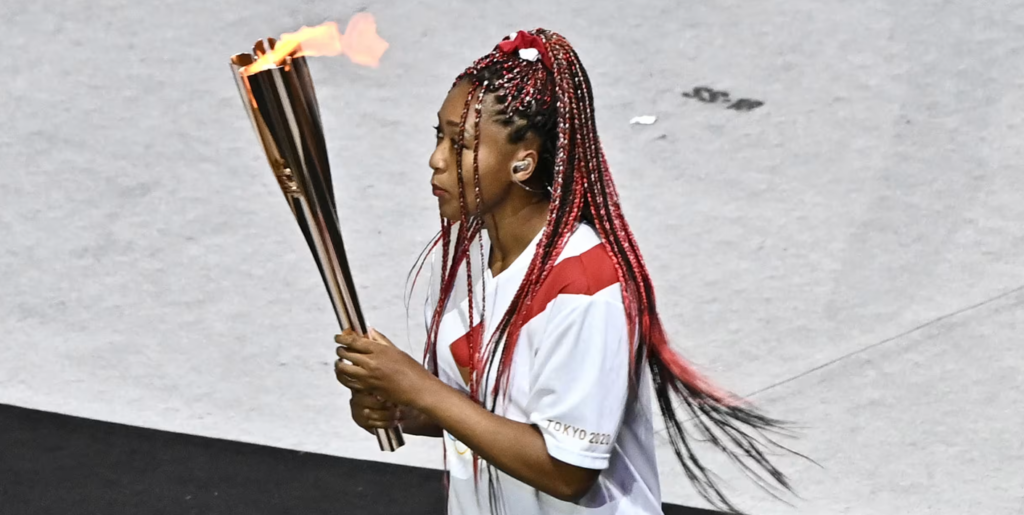
– Name three words that best describe Osaka.
– So many words…she is “evolved”. She remains kind of a work in progress, constantly learning by herself, learning from the world. Considering she had a very isolated childhood followed by a very public life makes a very interesting mix afterwards.
– You picked a word that reminds us her businesses…
– Coincidentally her managing company is called Evolve, but I wasn’t thinking about that when I said that word (laugher). She is “contemporary”. Osaka reflects a lot of what is going on in the world right now. For example, what she was going thru in 2021, mental health wise, was reflecting a lot of people’s struggles. A third adjective would be “powerful”, which is a boring world, but just see what she was able to do in US Open Final against Serena in 2018. Being able to win in that environment, that chaos. And at the time being human and suffering from that. She loves Serena and she was stopping her reaching Margaret Court’s record of 24 Grand Slams. People were framing Serena as the bad one and Naomi as the good one. That made her very uncomfortable. She didn’t like that.
– Such a big moment in her career. How is it reflected in the book?
– It was an incredible overwhelming experience for her. Naomi was treated by the media as the clear innocent, the victim in this fight between Serena and Carlos Ramos. Under all this fire, everyone would agree Naomi did nothing wrong and deserved to win. As all the heat was put in this dispute, Naomi´s achievement was a bigger story at the end. It would not have been that way if she wins the US Open beating (Anastasija) Sevastova (who Williams beat in the semis) in the final. That made her famous outside of Japan.
– A bit of more controversy: she is making her comeback with coach Wim Fissette, with whom she was successful before her hiatus. He left Qinwen Zheng aside. That did not please the young Chinese at all. Can we read about that in the book?
– We did spoke with Fissette about that, yeah. Basically he wasn’t feeling a great connection with Zheng. He didn’t think they were a good match in terms of coaching, even the results were pretty good, he wasn’t feeling much chemistry. Naomi came along, together they won two Grand Slams, and he was impressed about what she wanted to accomplish in tennis after her comeback.
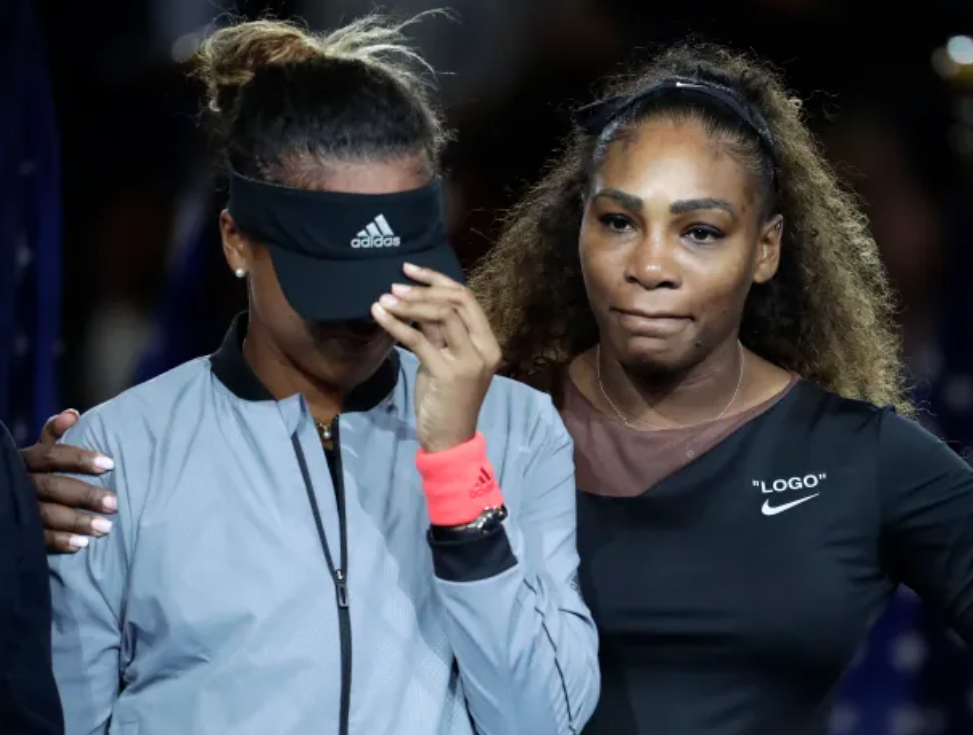
– She said she wants to win eight more Grand Slams for her daughter to witness. Not a minor goal.
– That was such a brave thing to say out loud, setting bigger expectations. It’s a very tough bar and if she wins three more Grand Slams it wouldn’t be a failure…even one more would be amazing honestly. She is very ambitious. Is not a disaster if she losses early in Australia, her coach said. And losing became something very tough to her in 2021.
– Did she read the book?
– I did send a copy of it to her team. She was very responsible and engaged with the fact checking part, as there is a lot of new material about her life that hasn’t been published anywhere before, and so she went through a bunch of that stuff confirming it or sometimes clarifying it. No major corrections needed to happen. But worth saying: she didn’t approved the entire text or not. It’s a book I wrote independently.
– What might have gone through her mind during 2023, watching the tour on TV?
– I don’t know that answer totally, but I do think nothing is super intimidating for her. Look at tennis right know. Honestly, (Marketa) Vondrousova winning Wimbledon means a lot of people can win Wimbledon, like it seems is a fairly big opportunity. I think Naomi looks at the field and doesn’t think there is anyone who she has no shot against. There are some good players, for sure. (Iga) Swiatek is a great one, (Aryna) Sabalenka is been playing good, Coco Gauff is been tough for Naomi. But Naomi might think “I can beat them now”. Even that was probably what Caro Wozniacki thought. “There’s space for me”.
– Were you surprised by something about Osaka during your investigation?
– I found a lot of things I didn’t know about her life. Like she was in a movie. Her father made movies, so she was an actress when she was 7-8 years old. Is called “Selfish love”. Her father had this ambition of being a director and makes this really dark movie, super intense, about domestic violence. Not a happy one. That appears in the book, also with other very fun stories about her life.
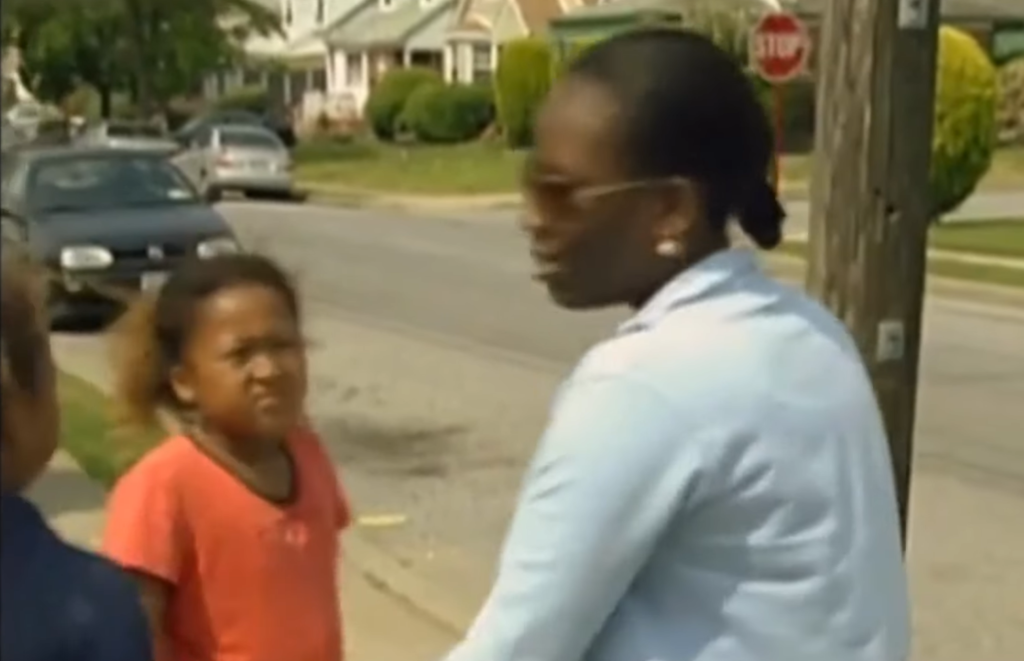
If you liked this interview with Naomi Osaka’s biographer, don’t miss, in this link to our site, many other interviews to the great protagonists of tennis.
COVER PHOTO: BEN ROTHENBERG HOLDING THE RECENTLY PUBLISHED NAOMI OSAKA’S BIOGRAPHY

